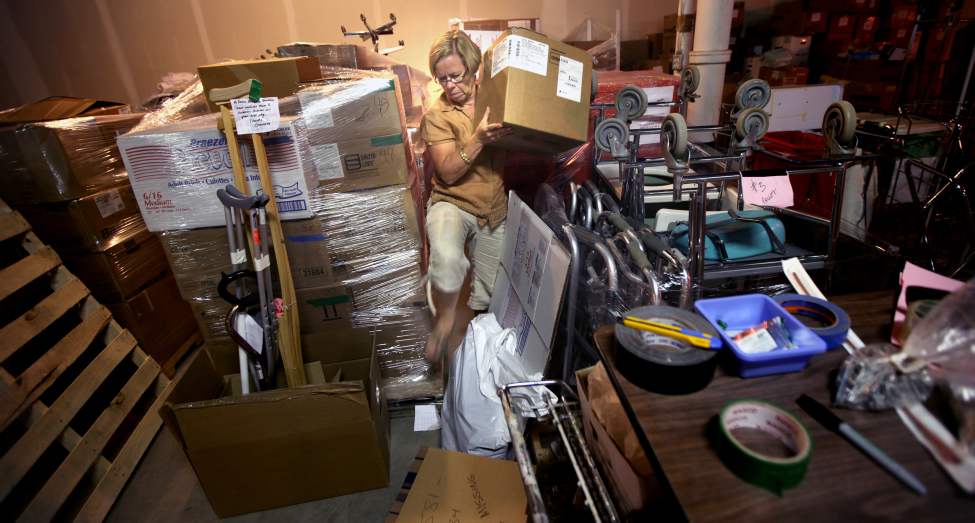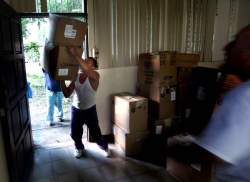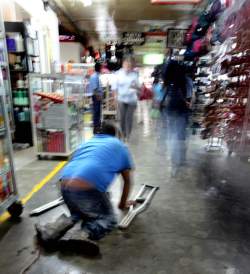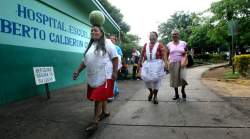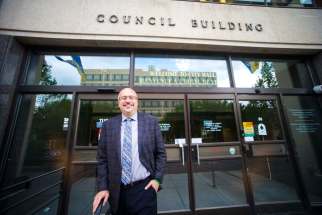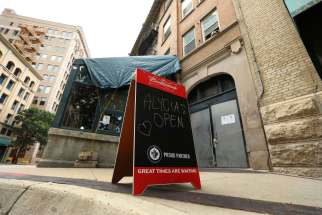Manitoba volunteer medical mission to Nicaragua cancelled due to unrest
Read this article for free:
or
Already have an account? Log in here »
To continue reading, please subscribe:
Monthly Digital Subscription
$0 for the first 4 weeks*
- Enjoy unlimited reading on winnipegfreepress.com
- Read the E-Edition, our digital replica newspaper
- Access News Break, our award-winning app
- Play interactive puzzles
*No charge for 4 weeks then price increases to the regular rate of $19.00 plus GST every four weeks. Offer available to new and qualified returning subscribers only. Cancel any time.
Monthly Digital Subscription
$4.75/week*
- Enjoy unlimited reading on winnipegfreepress.com
- Read the E-Edition, our digital replica newspaper
- Access News Break, our award-winning app
- Play interactive puzzles
*Billed as $19 plus GST every four weeks. Cancel any time.
To continue reading, please subscribe:
Add Free Press access to your Brandon Sun subscription for only an additional
$1 for the first 4 weeks*
*Your next subscription payment will increase by $1.00 and you will be charged $16.99 plus GST for four weeks. After four weeks, your payment will increase to $23.99 plus GST every four weeks.
Read unlimited articles for free today:
or
Already have an account? Log in here »
Hey there, time traveller!
This article was published 25/07/2018 (2702 days ago), so information in it may no longer be current.
Dozens of Nicaraguans in need of hip and knee replacements won’t get surgery this fall, after a group of Manitoba doctors cancelled a surgical mission due to ongoing civil unrest in the Central American country’s capital.
For the first time in seven years, a team of doctors, nurses, physiotherapists and other medical staff won’t travel to Managua as part of the annual Operation Walk Winnipeg. Medical volunteers from across the province have treated hundreds of underprivileged Nicaraguans over the years; they gave new hips and knees to nearly 70 patients in desperate need of joint surgery during last year’s three-day trip.
The 2018 trip, scheduled for November, was cancelled last week, the group’s lead surgeon, David Hedden told the Free Press.
“We feel terrible that we can’t go this year, but the safety of the team is the most important thing,” said Hedden, who doubles as medical director at the Concordia Joint Replacement Group at the Winnipeg hospital.

Nicaragua’s capital has been ravaged by riots since April. What started out as a peaceful protest against President Daniel Ortega’s neoliberal reforms to the country’s social security system has escalated into a nationwide uprising against the authoritarian regime.
Human rights groups estimate government repression has resulted in more than 200 deaths and upwards of 1,100 injuries. And according to a recent Amnesty International report, state violence has intensified in recent weeks.
“I respect the decisions that are made by individuals and organizations in terms of how of a risk they’re willing to take on, but what it does is it leaves the people in Nicaragua more vulnerable,” said Louise Simbandumwe, co-chairwoman of Amnesty International Winnipeg.
The level of repression that’s happening in the country, especially in attacks against civilians, is “heartbreaking,” she said.
“There’s lots of civil unrest in Managua… and that’s where the hospital (a public teaching facility where care is provided by the government) where we usually do our surgery is located,” Hedden said, adding he’s been keeping in contact with the local doctors.
He said the volunteer group also couldn’t hold off on its decision, because it faced paying cancellation fees later on.
The federal government has also issued a travel advisory that warns Canadians to avoid “non-essential travel” to Nicaragua because of the conflict.
“Global Affairs Canada is very concerned about the deteriorating situation in Nicaragua… Canada calls on the government of Nicaragua to end the violence and ensure justice and accountability for human rights violations,” Krista Humick, spokeswoman for department that manages Canada’s diplomatic and consular relations, wrote in a statement to the Free Press.
The travel advisory means if anything were to happen to the volunteers during the trip, Hedden said they wouldn’t receive the usual government support.“The unfortunate thing is there will be a lot of patients who won’t benefit from hip and knee surgeries this year. We see the most incredible deformities. We often have patients that haven’t walked for a year or two, and we fix their joints and they walk out of the hospital”
“The unfortunate thing is there will be a lot of patients who won’t benefit from hip and knee surgeries this year. We see the most incredible deformities,” he said. “We often have patients that haven’t walked for a year or two, and we fix their joints and they walk out of the hospital.”
The Winnipeg doctor said there are as many as 3,000 people estimated to be in need of joint surgery in Nicaragua.
“We have a wait list in Canada, but there, that’s not even an option,” said Sharon Jillie, a nurse at Concordia Hospital who has volunteered with Operation Walk Winnipeg for the last three years.
Jillie said the patients are always “overwhelmingly grateful,” because their conditions often prevent them from working.
Preventative drugs, which can prevent joint inflammation developing into a need for a hip or knee replacement, aren’t readily available nor affordable in Nicaragua, Hedden said. That then leads to an increased need for joint surgeries, which hospitals can’t provide because a lack of funding.
Most of the resources in Managua go towards funding trauma care, he said.
That’s why organizations like Operation Walk fundraise for their missions; the annual trip from Winnipeg costs between $150,000 to $200,000. The money raised this year will be banked for the next trip, hopefully in 2019, Hedden said.
maggie.macintosh@freepress.mb.ca
Twitter: @macintoshmaggie

Maggie Macintosh reports on education for the Winnipeg Free Press. Funding for the Free Press education reporter comes from the Government of Canada through the Local Journalism Initiative.
Our newsroom depends on a growing audience of readers to power our journalism. If you are not a paid reader, please consider becoming a subscriber.
Our newsroom depends on its audience of readers to power our journalism. Thank you for your support.

